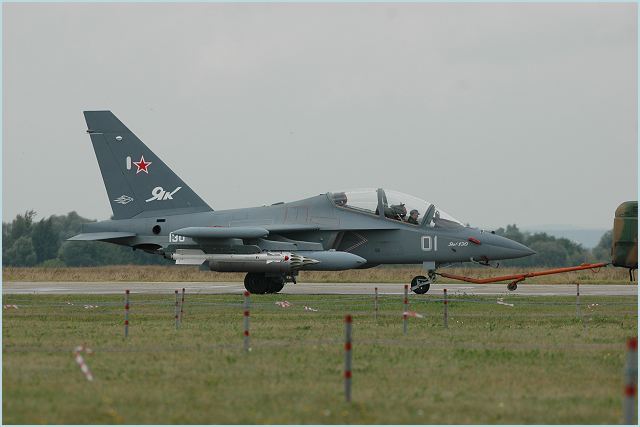Under the deal struck
in late December, the jets are to be supplied to Syria once Damascus
makes a prepayment, the source said.
A source in the aircraft production industry told the newspaper the
aircraft construction company Irkut is able to produce the jets for
Syria in a relatively short time.
Contacted by RIA Novosti, both Rosoboronexport and Irkut declined to
comment.
Analysts say the contract is “risky” given the worsening
satiation in Syria and the growing international pressure on President
Bashar al-Assad over his crackdown on protesters.
Ruslan Pukhov, who heads the Moscow-based Center for Analysis of Stategies
and Technologies, said the contract was “certainly a big success
of Russia’s leaders and arms traders.” But it’s clear,
he said, that “the international community, led by the United
States, has made a decision to crush Bashar al-Assad’s regime,
and this may lead to the contract being disrupted and Russia suffering
image and financial losses.”
The contract was apparently signed when the situation in Syria was “not
as dramatic as it is now,” Pukhov said, adding that getting the
Russian jets has likely lost its relevance for Damascus.
“The Yak-130
plane is superfluous for attacking insurgents – these goals can
be served by cheaper planes,” the analyst said. At the same time,
he said, the jet cannot endure air battles with Israeli, Turkish, or
Western coalition’s aircraft, should a military conflict erupt
in Syria.
Russia has opposed international sanctions, including an arms embargo,
against Syria, where the death toll from clashes between protesters
and government troops has reached 5,400, according to the United Nations.
Earlier this month,
the United States expressed concerns over weapons deliveries to Damascus
following media reports about a Russian ship loaded with arms docking
in the Syrian port of Tartus.
Without explicitly confirming the report of the arms shipment, Russian
Foreign Minister Sergei Lavrov said last week Russia was not going to
justify its actions before the West because it was not violating “any
international agreements or any [UN] Security Council resolutions.”
“We are only trading items with Syria that are not banned by international
law,” he said.



























